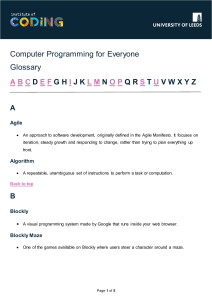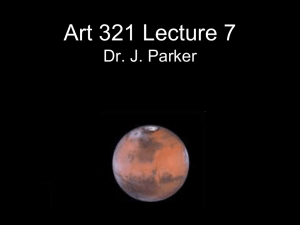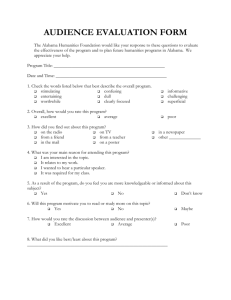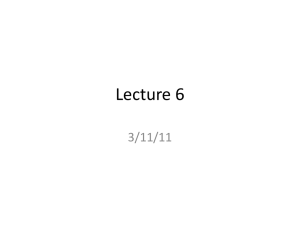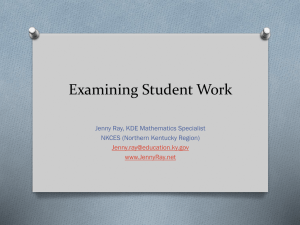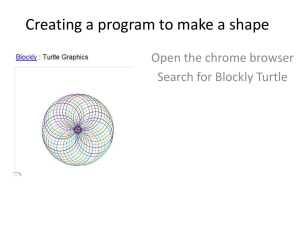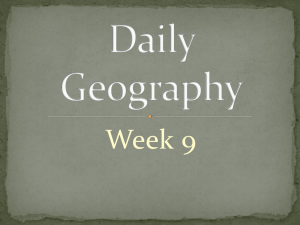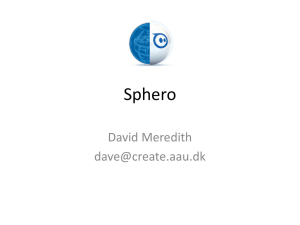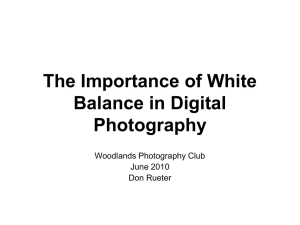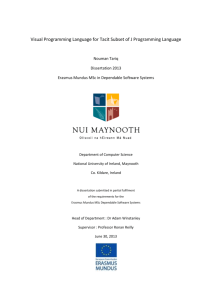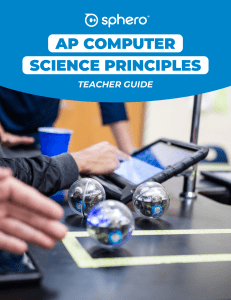Sample proposal (Word)
advertisement
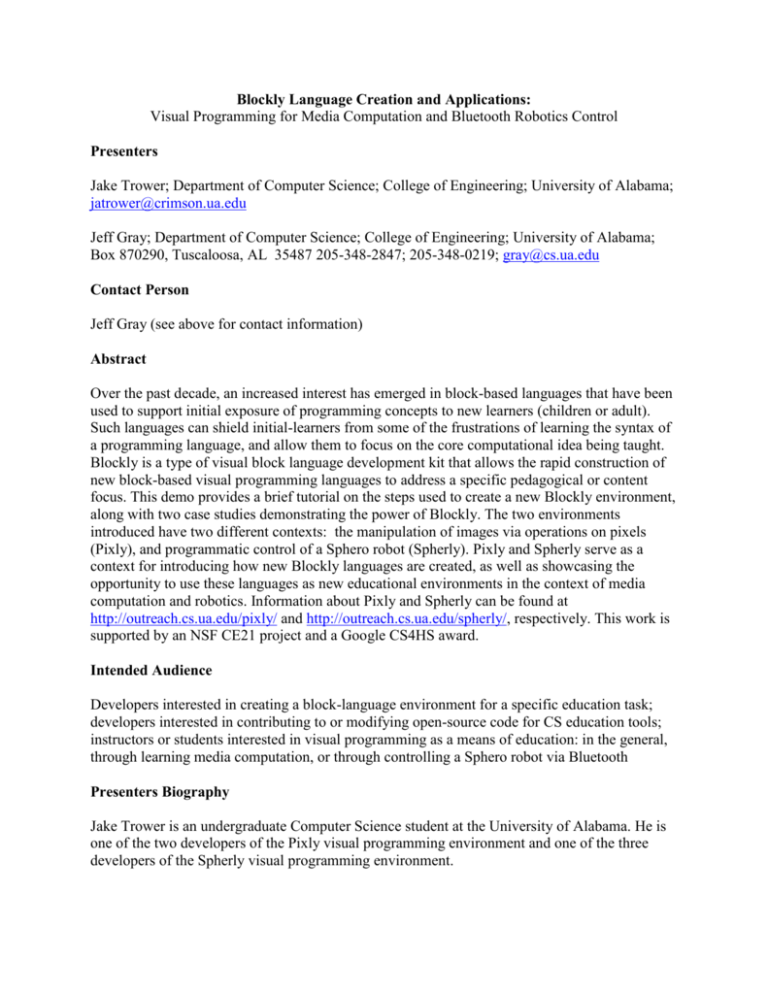
Blockly Language Creation and Applications: Visual Programming for Media Computation and Bluetooth Robotics Control Presenters Jake Trower; Department of Computer Science; College of Engineering; University of Alabama; jatrower@crimson.ua.edu Jeff Gray; Department of Computer Science; College of Engineering; University of Alabama; Box 870290, Tuscaloosa, AL 35487 205-348-2847; 205-348-0219; gray@cs.ua.edu Contact Person Jeff Gray (see above for contact information) Abstract Over the past decade, an increased interest has emerged in block-based languages that have been used to support initial exposure of programming concepts to new learners (children or adult). Such languages can shield initial-learners from some of the frustrations of learning the syntax of a programming language, and allow them to focus on the core computational idea being taught. Blockly is a type of visual block language development kit that allows the rapid construction of new block-based visual programming languages to address a specific pedagogical or content focus. This demo provides a brief tutorial on the steps used to create a new Blockly environment, along with two case studies demonstrating the power of Blockly. The two environments introduced have two different contexts: the manipulation of images via operations on pixels (Pixly), and programmatic control of a Sphero robot (Spherly). Pixly and Spherly serve as a context for introducing how new Blockly languages are created, as well as showcasing the opportunity to use these languages as new educational environments in the context of media computation and robotics. Information about Pixly and Spherly can be found at http://outreach.cs.ua.edu/pixly/ and http://outreach.cs.ua.edu/spherly/, respectively. This work is supported by an NSF CE21 project and a Google CS4HS award. Intended Audience Developers interested in creating a block-language environment for a specific education task; developers interested in contributing to or modifying open-source code for CS education tools; instructors or students interested in visual programming as a means of education: in the general, through learning media computation, or through controlling a Sphero robot via Bluetooth Presenters Biography Jake Trower is an undergraduate Computer Science student at the University of Alabama. He is one of the two developers of the Pixly visual programming environment and one of the three developers of the Spherly visual programming environment. Jeff Gray is a Professor in the Department of Computer Science at the University of Alabama. He offers several K-12 outreach opportunities each year and has been a CS Principles national pilot instructor since 2011. More info about Jeff is available at: http://gray.cs.ua.edu Materials Provided Attendees will be provided a handout that contains brief descriptions of the Blockly visual programming editor and the two case study applications created with it, as well as links to all three resources. Rough Agenda for the Demo 0-5 minutes: Setup and Introduction to Blockly 5-15 minutes: Discussion of Pixly and Mediacomp Examples 15-25 minutes: Discussion of Spherly/Sphero and Examples 25-30 minutes: Questions from the audience Audio/Visual and Computer Requirements 1. Wireless/Ethernet access and power socket required (a laptop will be brought, and we need to connect to the internet) 2. Projector to display the screen of the computer/laptop above 3. Space for the Sphero robot to roll around
